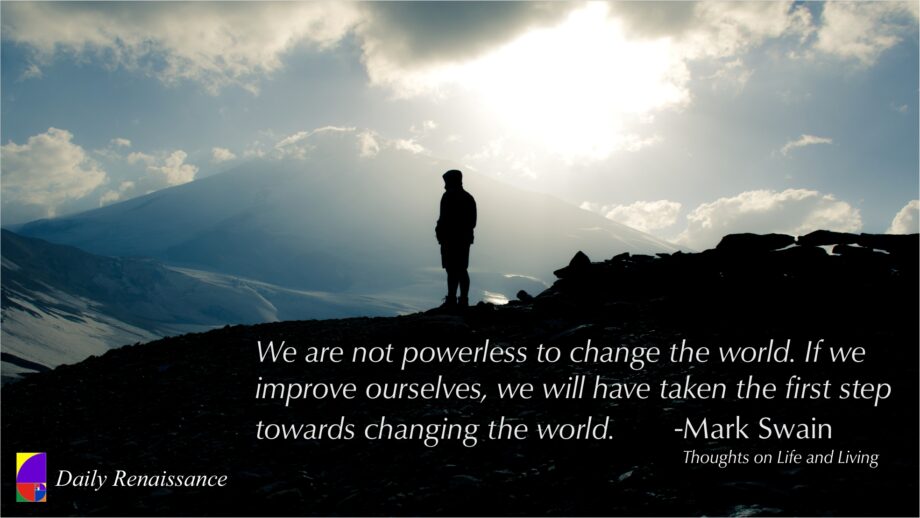People look with frustration at various conditions in our world and wish they could do something to make things better. The truth is they can! However, in order to do so, they have to overcome strong conditioning. Many have been taught—and some believe—that one person can’t make a “real” difference in the world. We can see the evidence of that belief all around us. For example, many of us have heard, “I’m not going to vote. My vote doesn’t really matter anyway.”
President Kennedy once said, “One person can make a difference, and everyone should try.”
I’d like to tell you about one of my heroes—a man who envisioned a better world, committed to doing his part, and encouraged others to do the same. In 1848, a few months after leaving his cabin at Walden Pond, Henry David Thoreau delivered a powerful speech that would later form the basis of his published essay “On the Duty of Civil Disobedience.” Thoreau was an abolitionist and he disagreed with the Mexican-American War (which could have extended slavery to that part of the continent). He encouraged those assembled to not allow the government to overrule their consciences and force them to become agents of injustice. He told them that justice begins with a personal commitment to treat your fellow beings with kindness and respect. Thoreau famously chose jail time over paying a poll tax that he felt would perpetuate slavery and help prosecute an unjust war. History shows us that Thoreau’s powerful words and exemplary life became a catalyst for positive changes in our world…
Mahatma Gandhi, the humble lawyer from India, was so inspired by Thoreau’s life and writings that he believed colonial rule of the subcontinent could be brought to an end through nonviolent resistance. As a result, he inspired millions of people to demand independence for India. Gandhi said of Thoreau, “…he taught nothing he was not prepared to practice himself. He was one of the greatest and most moral men America has produced.”
Martin Luther King Jr., the American civil rights leader—the man who had a “dream” and inspired millions to help him implement it—was deeply moved by Thoreau’s life and work. In his autobiography he wrote, “I became convinced that noncooperation with evil is as much a moral obligation as is cooperation with good. No other person has been more eloquent and passionate in getting this idea across than Henry David Thoreau.”
Friends, just like these two men, I have been inspired by the life and words of Thoreau. I have come to believe that each of us can become agents of change in this world by first making ourselves examples of the changes we wish to see. When others see our examples, perhaps they will be inspired to change their lives in positive ways as well. The world will then change for the better—one person at a time. I will leave you with the wise words of another of my personal heroes, Rumi. “Yesterday I was clever, so I wanted to change the world. Today I am wise, so I am changing myself.”

